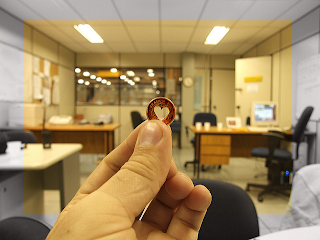Self-admiring men attract mates more easily, study finds
By Kathleen Doheny
HealthDay Reporter
(HealthDay News) -- Men with high levels of narcissism -- an unrealistically positive self-image coupled with feelings of entitlement -- have an easier time than others attracting a potential mate, new German research says.
"Narcissism is linked to mate appeal in a real-life situation," said Michael Dufner, a researcher at Humboldt University of Berlin, who led the study.
The research is published in the July issue of the journal Personality and Social Psychology Bulletin.
Dufner and his team first measured narcissism levels in 61 men with an average age of 25, who were invited to join a courtship study in Germany. "We focused on narcissism as a personality trait, not the personality disorder," he said. "This means that everybody has a certain narcissism level -- for some it is higher, for others lower."
Next, the researchers asked the men to approach women they did not know on the street and get contact information. It could be a phone number, email or Facebook contact.
Research assistants followed the men (which the men were aware of), observing the interactions. Dufner decided to focus on men in this study because men traditionally court a potential mate in this way, compared to women's typically more subtle approaches, such as flirting, he said.
"We tested if individuals with higher narcissism scores are more appealing," he said.
On average, the men approached about 23 women. To rule out the possibility that the more narcissistic men were more selective in who they approached, the researchers analyzed each woman who was approached on her physical attractiveness and manner of dress. The narcissists weren't more selective.
The narcissistic guys did get the girl more often. The higher the level of narcissism, the more likely they were to get more contacts.
"The effect was not due to high self-esteem, but indeed the narcissism," Dufner said. The physical attractiveness and social boldness of the narcissists were the two likely reasons for their appeal to women, he said.
Dufner offered some caveats about the research, though. "We were not able to directly test the causality underlying the association between narcissism and physical attractiveness," he said.
One possibility, he said, is that physical attractiveness may be a partial cause of narcissism, as other researchers have suggested.
For narcissists -- and the women they seek -- the news is not all good, Dufner said. "Narcissists are charming and appealing at first sight, but they are not long-term romantic partners," he said.
The study findings confirm what many experts have long suspected, said Jean Twenge, a professor of psychology at San Diego State University who has written about narcissism. "Narcissists are very good at initiating relationships," she said. "On first impression, they come across as confident and charming. The problems arise later on, when you realize that he doesn't actually care about you -- it's all about him."
Twenge was not involved in the study, but reviewed the findings.
Caution is the byword for those attracted to narcissists, both experts agreed. "In the long run, narcissists made bad relationship partners," Twenge said. "They lack empathy and have a difficult time taking someone else's perspective."
Twenge said she does understand why women fall for narcissists. "The initial appeal of narcissists comes from their assertiveness and confidence," she said. "These are stereotypically masculine traits that many women find appealing."
 My passion is help you get it, so your relationships don't completely stress you out! That's why "The DNA of Relationships" study is so important, or the book my wife and I barely survived writing (because we are so different...we almost killed each other. You'll have to read the book to understand.), will revolutionize the way you resolve conflict. "The Surprising Way to a Stronger Marriage". Click on the links to learn more about those resources and find more that will help you love each other like you never dreamed possible!
My passion is help you get it, so your relationships don't completely stress you out! That's why "The DNA of Relationships" study is so important, or the book my wife and I barely survived writing (because we are so different...we almost killed each other. You'll have to read the book to understand.), will revolutionize the way you resolve conflict. "The Surprising Way to a Stronger Marriage". Click on the links to learn more about those resources and find more that will help you love each other like you never dreamed possible! 














